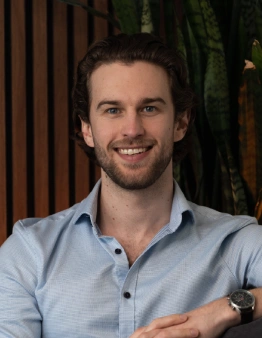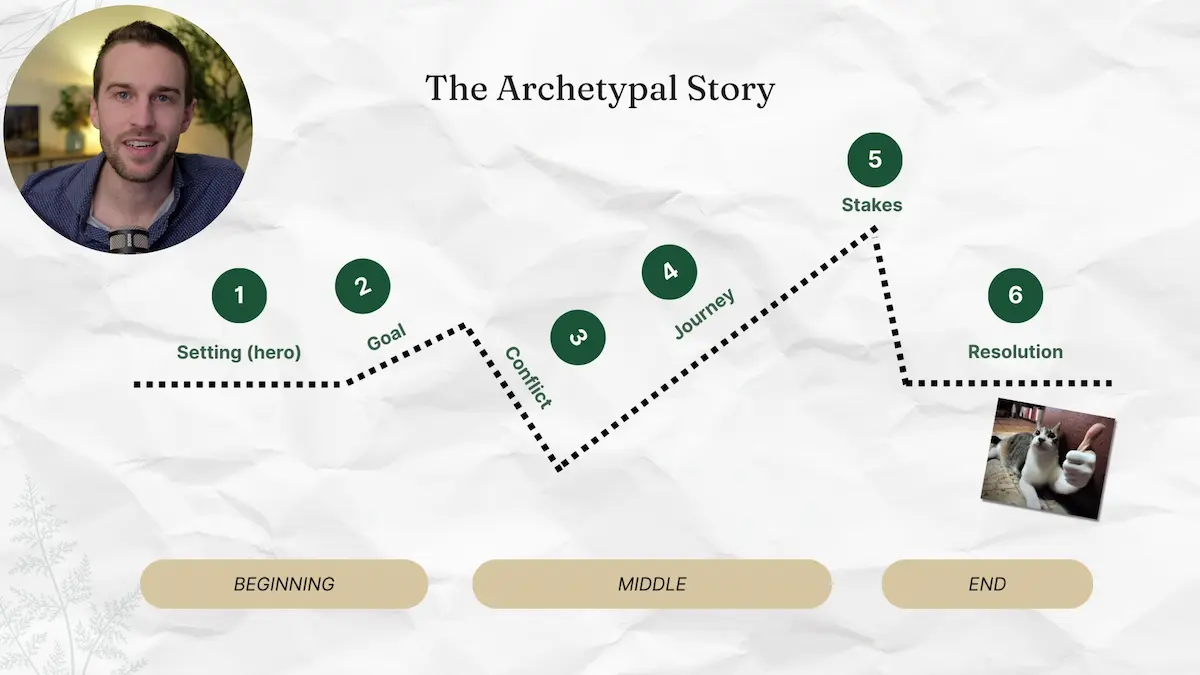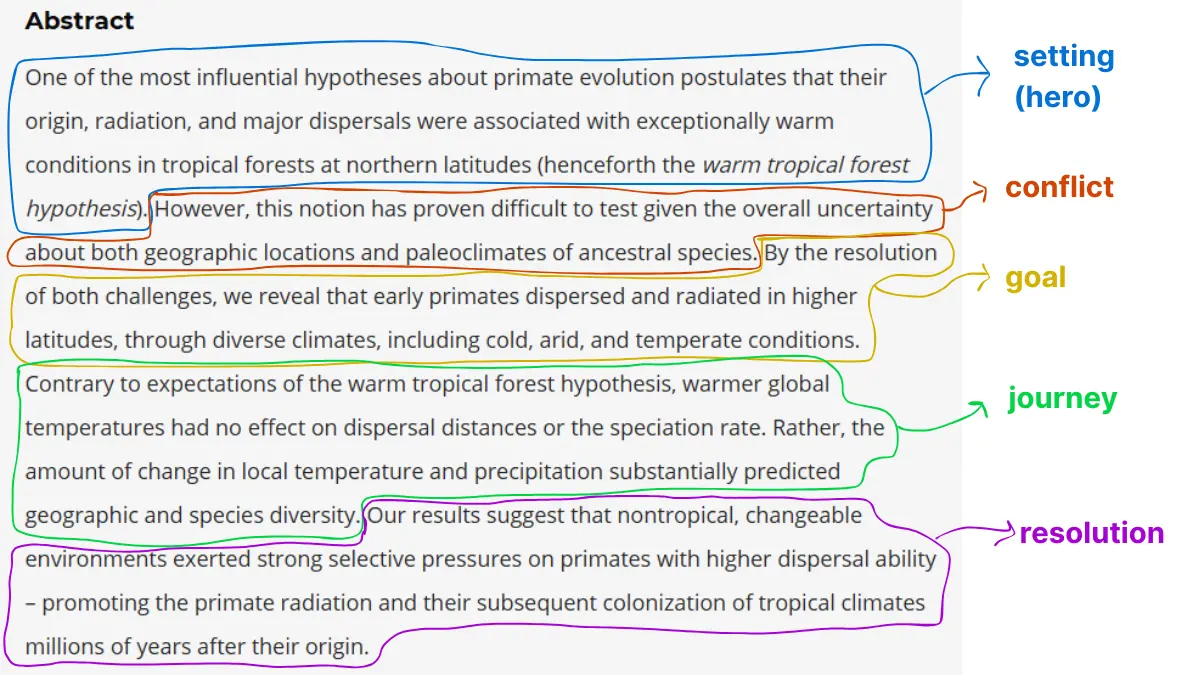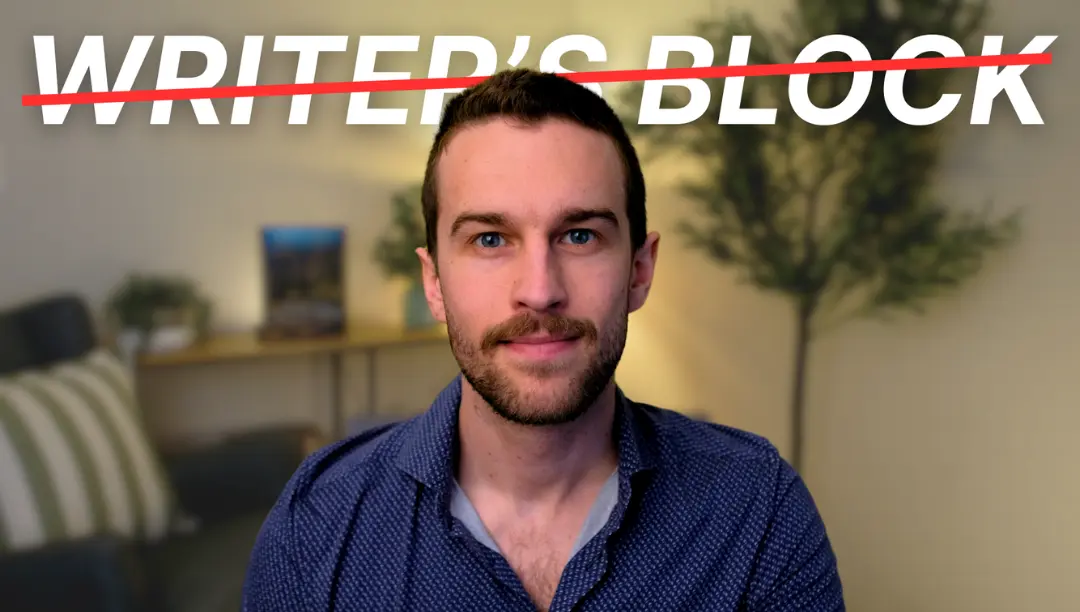Blog • Posted on Aug 31, 2025
How To Overcome Writer’s Block In Your PhD
Many PhDs think that staring at a blank Word document not knowing what to write is simply a bad case of writer’s block. But what if I told you that writer’s block isn’t actually a real thing? What if I told you that it’s actually a symptom of a deeper issue that’s easily fixed?
In this article, I’ll break down the steps you need to take to ensure you never suffer from writer’s block in your PhD again.
Key Takeaways
- Writer’s block is a symptom of not knowing your paper or chapter’s story.
- Stories are powerful communication tools that make the writing process easier and more curiosity-evoking.
- All scientific papers are stories when you look closely.
- Find your story by writing your abstract and use that to guide what comes next.
Table of Contents
Writer’s Block is a symptom, not a sickness
People talk about writer’s block as if it were some evil creature lurking in the darkness, waiting to strike. Like you’re just going about your day and then, suddenly, BAM–you’ve got the sickness.
But that’s just a lazy way of diverting the blame.
The reality is that writer’s block is a symptom, and that symptom is: you don’t know what to write.
So if writer’s block is a symptom, what’s the sickness?
Unpacking the root cause
Here’s how writer’s block plays out in your PhD:
- You don’t know what to write next, and that’s because
- You don’t know what comes next, and that’s because
- You don’t have a plan, and that’s because
- You don’t know your story
Your story gives every sentence purpose. And writing without purpose is just waffling.

We Help Working PhDs Finish Faster & Publish More Through:
- 1-On-1 Mentoring - Real people. Real results.
- Professional Editing - Our team of expert editors will get your manuscript publication-ready.
- Online Courses - Learn invaluable presenting & writing skills.
Why your paper’s story matters so much
Stories have been the primary vehicle for the dissemination of human knowledge for millenia.
Whether spoken or written, acted out or sung, stories are how we pass information between one another.
Think theatre, cinema, scripture. They’re all mediums for telling stories. And scientific papers are no different.
The other reason is that, believe it or not, you are 22-times more likely to remember something when it is told to you as a story than when it is told as a fact.
Appreciate that for a moment… 22-times more memorable.
We’d be fools not to harness the power of storytelling in our academic writing.
Finally, stories have two inherent properties that make them ideal for writing scientific papers:
- Their inherent structure makes it impossible to not know what comes next
- They evoke curiosity
Imagine I asked you to tell me about that time you got punched at the bar.
You wouldn't struggle to know how to order your sentences. You would just start speaking and it would flow very naturally.
And more than likely, you’ll have me clinging to every word as I’m now emotionally invested in this story.
The hidden story in scientific papers
We’re told repeatedly that science is cut and dry. Void of any creativity or emotion.
But that couldn’t be any further from the truth.
If you look closer, you’ll find that all scientific papers are actually just stories–albeit told in a slightly different order than we are used to.

Here’s how a story usually looks:
- Setting (hero): in the beginning, we typically meet the character that becomes the hero. We’re introduced to their living conditions, upbringing, daily struggles, or some context that helps us understand their intention.
- Goal: we learn that the hero has some goal. That might be to escape said living conditions or other complicating factor. Now we’re emotionally invested.
- Conflict: a movie wouldn't be a movie without conflict. If the hero simply set out on their goal and achieved it without hindrance, you wouldn't watch.
- Journey: this is where the bulk of the movie or book takes place. We’re fully invested now, and we’ll sit through an hour of scenes to see our hero achieve their goal.
- Stakes: it’s impossible to have a goal and go up against conflict without laying something on the line. It’s the stakes that multiply our engagement as readers/viewers.
- Resolution: this is where the story ends or the loop is closed. We get our answer and we’re left feeling satisfied, having lived vicariously through our hero.
But all of that sounds far removed from a scientific paper, right?
Wrong.
All academic papers are stories, just like books and cinema. They’re just told in a slightly different order.
Take a look at this abstract.

Notice how all of the core components of a story are found within it?
Your abstract is your paper summarized in six sentences.
Since those sentences are just elements of a story, that means your entire paper is too.
So if you’re suffering from writer’s block in your PhD, and you know that you need to find your story, try going back to your abstract.
How to fix writer’s block in your PhD
Now that we understand that writer’s block is the symptom of not understanding our paper’s story, how do we go about fixing it?
1. Stop Writing
No, really. Stop writing.
There’s no point in writing because you will inevitably have to rewrite it all anyway.
If you don’t know your story, then you don’t have a plan. And writing without a plan is just asking to waste time.
People often say: “you should just write, get everything down and then make sense of it later”. And while that advice might be well intended, it actively hurts your paper’s progress.
Here's why.
Imagine I asked you to build a house. Would you simply start stacking bricks in the hopes that it would eventually form into something that vaguely resembles a house?
No. Of course you wouldn’t. You’d ask for the plans.
Well, paper writing is no different.
2. Refer to your abstract
The plans for the building site that is your paper or thesis chapter are found within your abstract.
This is why I recommend you write your abstract first (not last, like so many say!). Your abstract serves as a compass, guiding you on what to write next whenever you’re lost.
Writing a paper without your abstract is like trying to cross the Amazon without a map or compass.
You’re just walking in the dark. And it’s entirely unnecessary.
Write your abstract first and you’ll never go off track in your academic writing again.
Btw, I wrote a useful guide on how to write your abstract in 6 simple steps.
FAQs
What causes writer’s block during a PhD?
Writer’s block in a PhD occurs when you are not clear on your paper’s story or structure. It's not some kind of sickness that strikes you. Instead, you need to spend time figuring out your storyline.
How do I overcome writer’s block in academic writing?
Step back from the blank page and return to your abstract. A clear abstract acts as a roadmap, showing you the logical flow of your paper and helping you decide what to write next.
Should I force myself to write through writer’s block?
Forcing yourself to write without a plan can lead to wasted time and heavy revisions. It is better to pause, clarify your story, and then continue writing with direction.
Is writer's block real or just a myth in a PhD?
Writer's block is more of a symptom than a sickness. It usually means you don't know the story your research paper is telling yet.
Conclusion
So, what have we learned? PhD writer’s block is a symptom, not a sickness. And the root cause of that symptom is that you haven’t isolated your paper’s story. To cure that, go back to writing your abstract.
Found this useful? This is the kind of stuff I teach in my mentorship all the time. Only, there, you’ll get 1-on-1 help from me to you. You can try a free session here.
Dr. Matt Biddick is Founder & Mentor at RURU. You can book a free call with him here.


